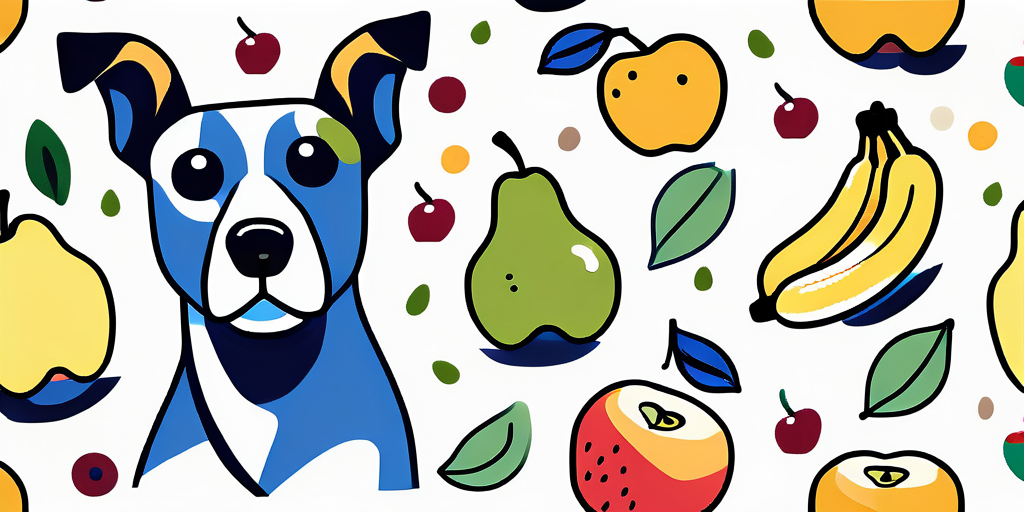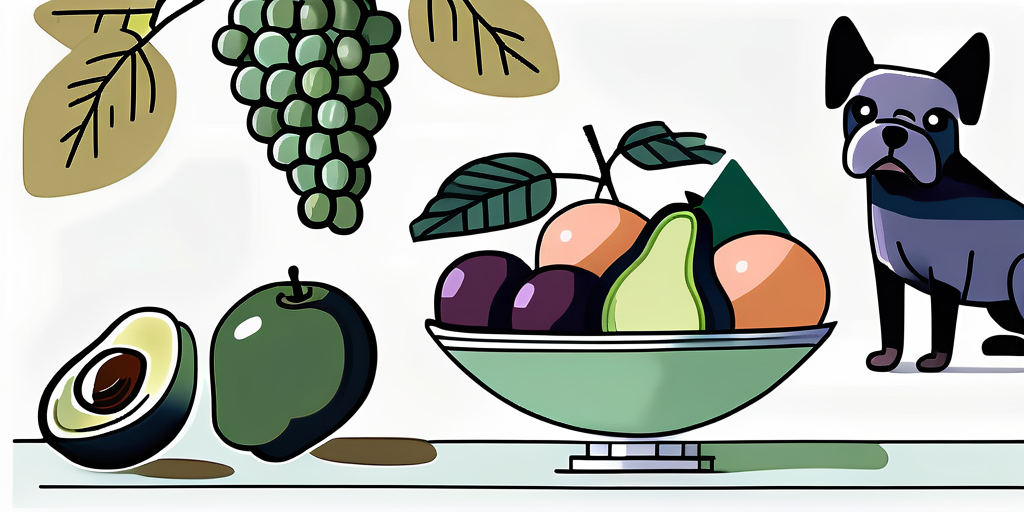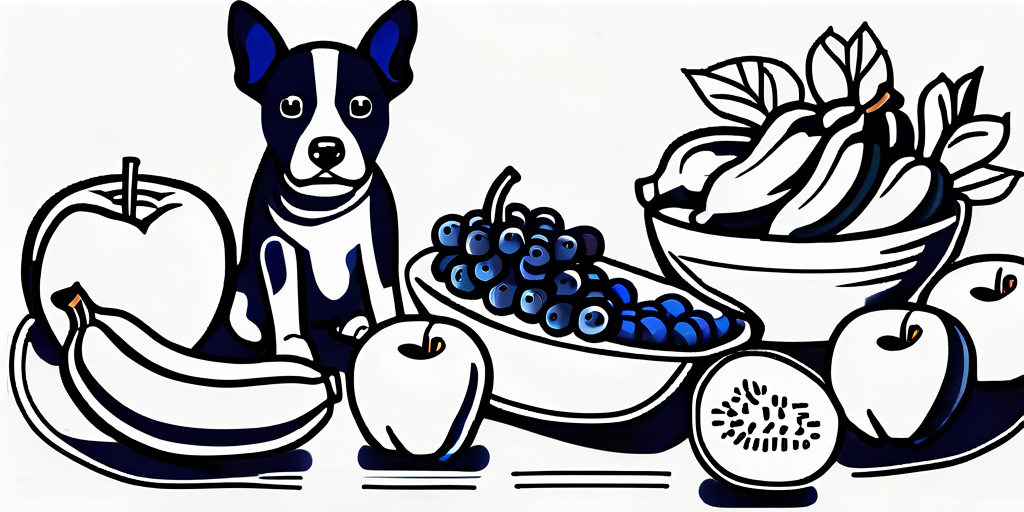In recent years, there has been a growing interest in providing dogs with a balanced and nutritious diet. One question that often comes up is whether dogs can safely consume fruits. As a pet owner, it is important to understand your dog’s dietary needs and make informed decisions about what you can and cannot feed them.
Understanding Your Dog’s Dietary Needs
Dogs, like humans, require a balanced diet to thrive. A well-rounded meal should consist of high-quality proteins, healthy fats, and carbohydrates, along with essential vitamins and minerals. These components work together to support your dog’s overall health and well-being.

The Importance of a Balanced Diet for Dogs
A balanced diet is crucial in maintaining your dog’s optimal health. It helps promote a strong immune system, supports healthy growth and development, and ensures proper digestion. When it comes to fruits, they can be a valuable addition to your dog’s diet, as long as they are introduced in moderation.
How Fruits Fit into a Dog’s Diet
Fruits are a natural source of vitamins, minerals, and antioxidants. Incorporating them into your dog’s diet can provide additional nutrients and offer a refreshing change of taste. However, it is important to note that not all fruits are safe for dogs to consume.
Before introducing any new fruits to your dog’s diet, it is essential to do your research and consult with your veterinarian. While some fruits, such as apples and bananas, are generally safe for dogs to eat, others, like grapes and raisins, can be toxic and should be avoided at all costs. Additionally, it is crucial to remove any seeds, pits, or cores from fruits before feeding them to your furry friend, as these parts can pose a choking hazard or contain harmful substances.
When offering fruits to your dog, it is best to do so in small, bite-sized pieces. This makes it easier for them to chew and digest. Some fruits that are safe and beneficial for dogs include blueberries, strawberries, and watermelon. These fruits are not only delicious but also packed with vitamins and antioxidants that can support your dog’s overall health.
Remember, while fruits can be a healthy addition to your dog’s diet, they should never replace their regular meals. Fruits should be offered as a treat or supplement to their balanced diet, and portion sizes should be adjusted accordingly to avoid overfeeding and potential digestive issues.
Safe Fruits for Dogs
When it comes to feeding fruits to your furry friend, there are several choices that are considered safe and beneficial. Let’s explore some of these options.
Apples and Their Nutritional Benefits for Dogs
Apples are a popular fruit that many dogs enjoy. They are a great source of vitamins A and C, as well as fiber, which aids in digestion. It is important to remove the seeds and core before offering apples to your dog, as these can be choking hazards.
Did you know that apples can also freshen your dog’s breath? Chewing on apple slices can help reduce the buildup of plaque and tartar on their teeth, promoting good oral health. Additionally, the natural crunch of apples can provide a satisfying texture for your pup, keeping them happily occupied.
The Advantages of Blueberries for Canine Health
Blueberries are packed with antioxidants and are known to have anti-inflammatory properties. They can benefit your dog’s immune system and promote healthy aging. Plus, they make a tasty treat that most dogs find irresistible!
Not only are blueberries a nutritious snack, but they are also low in calories and fat. This makes them an excellent choice for dogs that need to watch their weight. You can serve them fresh or frozen, and even use them as a topping for your dog’s meals to add a burst of flavor and extra nutrients.
Why Bananas Are Good for Dogs
Bananas are not only delicious but also a healthy choice for your furry companion. They are a rich source of potassium, vitamin C, and dietary fiber. Bananas can help regulate your dog’s digestive system and contribute to good heart health.
Did you know that bananas can also be a natural remedy for dogs with upset stomachs? The high levels of potassium in bananas can help restore electrolyte balance and soothe gastrointestinal issues. So, the next time your dog has an upset tummy, consider offering them a banana as a gentle and tasty solution.
Fruits to Avoid for Dogs
While there are many fruits that are safe for dogs, there are a few that should be strictly avoided. These fruits can pose serious risks to your dog’s health.

It’s important to be aware of the potential dangers that certain fruits can present to our furry friends. Dogs have different digestive systems than humans, and some fruits that are perfectly safe for us can be harmful or even toxic to them. Let’s take a closer look at a few fruits that should be kept away from your canine companion.
The Dangers of Grapes and Raisins
Grapes and raisins are highly toxic to dogs and can cause kidney failure. Even small amounts can have severe consequences. It is best to keep these fruits away from your furry friend at all times.
Although the exact reason why grapes and raisins are toxic to dogs is still unknown, it is clear that they can have devastating effects on their health. Symptoms of grape or raisin poisoning in dogs include vomiting, diarrhea, lethargy, and decreased appetite. If you suspect that your dog has ingested grapes or raisins, it is crucial to seek immediate veterinary attention.
Why Citrus Fruits Can Harm Your Dog
Although citrus fruits like oranges, lemons, and grapefruits are safe for humans, they can be harmful to dogs. The high levels of citric acid can cause upset stomachs and even lead to an allergic reaction in some cases.
While a small amount of citrus fruit may not cause any harm to your dog, it’s important to remember that dogs have more sensitive digestive systems compared to humans. The citric acid in these fruits can cause gastrointestinal upset, including symptoms such as vomiting, diarrhea, and abdominal pain. Additionally, the essential oils found in citrus fruits can be toxic to dogs if ingested in large quantities.
The Risk of Avocados for Dogs
While avocados are a popular choice among health-conscious individuals, they are not recommended for dogs. Avocados contain a substance called persin, which can be toxic to dogs and may cause digestive issues.
Persin, a natural fungicidal toxin found in avocados, can be harmful to dogs if consumed in large amounts. While the flesh of the avocado is generally considered safe for dogs, the pit, skin, and leaves contain higher levels of persin and should be avoided. Ingestion of these parts of the avocado can lead to symptoms such as vomiting, diarrhea, and difficulty breathing.
It’s always better to be safe than sorry when it comes to the well-being of our four-legged friends. While fruits can be a healthy addition to a dog’s diet, it’s essential to know which ones are safe and which ones should be avoided. By being mindful of the potential risks associated with certain fruits, we can ensure that our beloved dogs stay happy and healthy.
Preparing Fruits for Your Dog
Before offering fruits to your dog, there are a few important steps to take to ensure their safety.

The Importance of Washing Fruits
Just like with any food, it is essential to wash fruits thoroughly before feeding them to your dog. This helps remove any pesticides or harmful bacteria that may be present on the skin.
When washing fruits, it is best to use a mild, pet-safe soap or a vinegar-water solution. Gently scrub the surface of the fruit with a clean brush or your hands, making sure to remove any dirt or residue. Rinse the fruit thoroughly under running water to ensure all soap or vinegar is removed.
To Peel or Not to Peel: Preparing Different Fruits
Some fruits, like apples or bananas, can be safely fed to your dog with the peel intact. However, other fruits, such as oranges or mangoes, should be peeled before giving them to your furry friend. Removing the peel helps prevent choking and digestive issues.
When peeling fruits, use a sharp knife to carefully remove the skin. Make sure to remove any seeds or pits as well, as they can be harmful to your dog if ingested. Cut the fruit into small, bite-sized pieces to make it easier for your dog to chew and digest.
Portion Sizes and Frequency of Feeding Fruits
When it comes to feeding fruits to your dog, moderation is key. Fruits should only make up a small portion of their overall diet. It is recommended to consult with your veterinarian to determine the appropriate portion sizes and frequency of feeding fruits based on your dog’s age, size, and health condition.
Introduce new fruits gradually to your dog’s diet, starting with small amounts to see how they react. Some dogs may have sensitivities or allergies to certain fruits, so it’s important to monitor them closely after introducing a new fruit.
Remember, fruits should never replace a balanced and complete dog food diet. They should be given as occasional treats or added as a supplement to their regular meals. Always prioritize your dog’s nutritional needs and consult with your veterinarian for personalized advice.
In conclusion, while dogs can enjoy certain fruits as part of a balanced diet, not all fruits are safe for them to consume. It is important to understand your dog’s dietary needs and make informed choices. By incorporating safe fruits into their diet and following proper preparation guidelines, you can provide your furry friend with a healthy and enjoyable treat.
